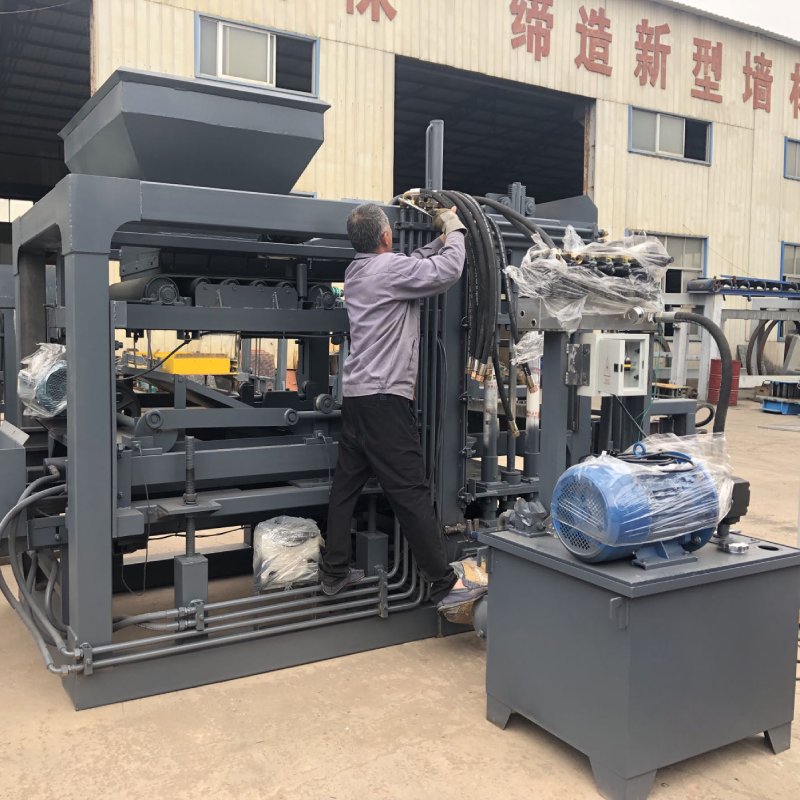
Image source Aiwei block machine
NGOs Partner with Manufacturers to Deploy Block Brick Making Machines
Introduction
Non-Governmental Organizations (NGOs) play a vital role in addressing social, economic, and environmental challenges across the globe. In recent years, NGOs have recognized the potential of block brick making machines to drive sustainable development and foster local entrepreneurship in underprivileged communities. To leverage the benefits of these machines effectively, NGOs are forming partnerships with brick-making machine manufacturers. This collaboration empowers communities with access to affordable, eco-friendly construction materials while promoting skills development and economic growth. In this article, we will explore how NGOs are partnering with manufacturers to deploy block brick making machines and the transformative impact of these initiatives on communities and the construction industry.
- The Role of NGOs in Sustainable Development
NGOs are instrumental in addressing diverse social and environmental challenges, ranging from poverty alleviation and education to climate change and disaster relief. These organizations operate independently of government authorities, aiming to create positive change and uplift vulnerable communities. By focusing on sustainable development goals, NGOs aim to improve living conditions, empower individuals, and foster economic growth.
- The Advantages of Block Brick Making Machines in Community Development
a. Affordable Construction Materials: Block brick making machines produce bricks at a lower cost compared to traditional methods. This affordability opens up opportunities for affordable housing projects and community infrastructure development.
b. Sustainability: Many block brick making machines integrate sustainable practices, such as using recycled materials or adopting energy-efficient processes, contributing to eco-friendly construction.
c. Job Creation and Skills Development: Deploying block brick making machines creates job opportunities for local communities. Training programs accompanying these initiatives empower individuals with valuable skills and technical expertise.
d. Reduced Environmental Impact: The adoption of eco-friendly materials and sustainable practices in brick manufacturing contributes to reduced carbon emissions and conservation of natural resources.
e. Community Ownership: By involving communities in the brick-making process, these initiatives instill a sense of ownership and pride, fostering a culture of community-driven development.
- The Role of Manufacturers in NGO Partnerships
a. Technical Expertise: Manufacturers bring technical expertise, engineering knowledge, and experience in designing and producing block brick making machines. This expertise ensures the deployment of efficient and reliable machines tailored to the specific needs of the project.
b. Machine Customization: Manufacturers can tailor machines to suit the local context and construction requirements, ensuring the most effective and appropriate technology is deployed.
c. Training and Support: Manufacturers provide training and ongoing technical support to the communities operating the machines. This knowledge transfer ensures the sustainable operation and maintenance of the equipment.
d. Scalability: Manufacturers’ involvement in NGO partnerships ensures scalability, enabling the replication of successful projects across different communities and regions.
e. Research and Development: Manufacturers continuously invest in research and development to improve machine efficiency, sustainability, and adaptability to evolving needs.
- Case Studies of Successful NGO-Manufacturer Partnerships
a. Sustainable Housing in Africa: NGOs partnering with brick-making machine manufacturers have facilitated sustainable housing initiatives in various African countries. These projects have provided affordable, durable housing for underserved communities, improving living conditions.
b. Disaster Relief in Asia: In the aftermath of natural disasters, NGOs and manufacturers have collaborated to deploy mobile brick-making machines, enabling the quick construction of temporary shelters and community facilities.
c. Skill Development in Latin America: Partnerships between NGOs and manufacturers have promoted skill development and entrepreneurship among marginalized communities in Latin American countries, stimulating local economies.
- Challenges and Solutions in Implementing Partnerships
a. Funding and Resources: Securing funding for block brick making machine deployments and related training programs can be a challenge. Collaboration with donors and government agencies can help address funding gaps.
b. Local Market Understanding: Manufacturers need to understand the specific needs, preferences, and market dynamics of the local community to ensure successful machine deployments.
c. Sustainable Business Models: Developing sustainable business models for brick production ensures the long-term viability and profitability of the initiative.
d. Technical Support and Training: Continuous technical support and training are essential to ensure the efficient operation and maintenance of the machines.
- Measuring Impact and Success
a. Social Impact: NGOs and manufacturers measure social impact by evaluating improvements in living conditions, job creation, and the well-being of the community.
b. Economic Growth: Assessing economic growth involves evaluating the growth of local businesses, income generation, and the expansion of construction projects.
c. Environmental Impact: Measuring environmental impact includes assessing the reduction in carbon emissions, waste reduction, and resource conservation.
- Conclusion
NGOs partnering with manufacturers to deploy block brick making machines exemplify the power of collaboration in driving sustainable development. These initiatives empower communities with affordable housing, job opportunities, and skills development, fostering economic growth and community ownership. The partnership between NGOs and manufacturers facilitates the deployment of advanced, eco-friendly brick-making technologies that align with the global push for sustainable construction practices. As more NGOs and manufacturers join forces, the transformative impact of block brick making machines on communities and the construction industry will continue to pave the way for a brighter and more inclusive future.
